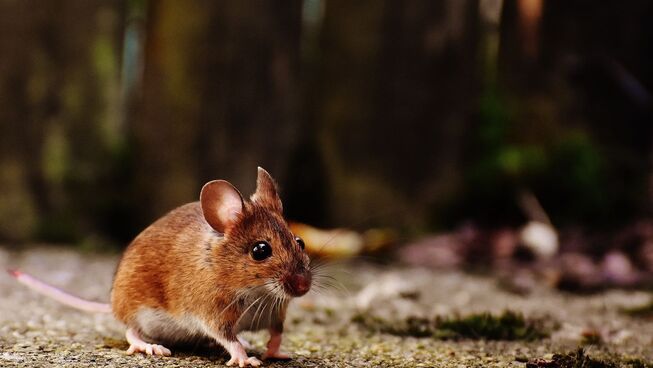
A mice plague
The mice plague in Western NSW has been described as an "economic and public health crisis" as millions of dollars of property and crops have been damaged or lost by millions of mice. Mice have been found in crops, homes, schools, hotels and even in hospitals. Controlling the mice has been a massive challenge for farmers and rural communities in Western NSW.
This topic was the focus of attention last week when the animal rights group PETA (People for the Ethical Treatment of Animals) demanded that farmers not kill the mice. They have argued that killing the mice promotes the “dangerous notion of human supremacy”. Rather than killing the ‘innocent’ rodents, farmers should catch and release them.
PETA representative Aleesha Naxakis spoke with David Koch (Kochie) on the 7 Network Sunrise program last week. Kochie raised the issue of human supremacy by asking Naxakis, “the people in the towns and communities, they’re more important than these mice …. They come before the mice, don’t they?”
Naxakis responded by affirming that PETA couldn’t ‘sign off on a lethal response’ one that would cause ‘immense suffering’. She also addressed the idea that mice were less important than humans by suggesting that this concept is a case of ‘speciesism, which she and PETA were strongly opposed to’, she says that this idea is a ‘worldview which puts humans above any other animal.’
A worldview issue: the equality of animals and humans
Indeed, this worldview where animals have equal importance to humans is a controversial and contested idea yet is one which defines PETA and their animal rights advocacy.
The ethical framework underlying PETA’s worldview has been shaped by utilitarian philosophers such as Peter Singer and Jeremy Bentham. These moral philosophers argue that when deciding on the right thing to do concerning a being’s rights, “The question is not ‘Can they reason?’ nor ‘Can they talk?’ but ‘Can they suffer?’”
Thus based on this framework - the suffering of any being, whether animal or human - becomes the crucial ethical and moral consideration. Singer logically argues that the pain of animals should count just as much as the pain of a human being.
Hence PETA, adopting this ethical worldview, are firm advocates to ‘end speciesism’. Their ethical justification is because animals also feel pain, love, joy and fear. This is the logical conclusion from their assumptions and Singer’s argument. As PETA founder Ingrid Newkirk has said,
“When it comes to pain, love, joy, loneliness, and fear, a rat is a pig is a dog is a boy. Each one values his or her life and fights the knife.”
Within the utilitarian moral framework of Bentham and Singer, it becomes a moral issue to kill mice. Hence PETA are completely consistent in their desires that the mice ravaging Western NSW not be killed to be controlled, because their suffering is of equal importance to humans.
A difficult worldview to live by
Whilst the worldview and the ethical framework is logical and consistent, the mice plague has created some substantial challenges to PETA and Peter Singer’s ethical views.
PETA claim that the best forms of prevention of these types of plagues are humane trapping and birth control - yet it’s not clear how these methods don’t also implicitly perpetuate speciesism and a form of human supremacy? ‘Catch and release’ appears a little paternalistic - why should we as humans determine where animals should and shouldn’t live? Moreover, birth control (and sterilization) has eerie echoes of the Nazi laws mandating the forced sterilization of certain humans.
Moreover, if it’s immoral that the suffering and death of mice is equal to that of humans, then it’s not clear why PETA are not doing more to protest against or save the mass killings of mice currently being conducted by farmers in Western NSW. Why is there no attempt at gathering and saving the mice, as heroes such as Oskar Schindler did for Jews being faced with extermination in Nazi Poland? Or why no call for farmers who kill thousands of mice be prosecuted for ‘crimes against sentient beings’? There is an uneasy inconsistency in the response to these acts. Perhaps this reveals another layer of our speciesism, or perhaps these responses are connected to deeper human intuitions?
PETA have made it clear that they cannot sign off on a response to the mouse plague involving lethal force. But they have conceded that if lethal control is used that ‘it is only ethical and right to do so as painlessly as possible”. This is a curious concession because if a rat (or a mouse!) “is a pig is a dog is a boy” - then surely PETA could not tolerate any form of suffering or death for any animals in any form. Morally it appears equivalent of permitting a human genocide - as long as the death was quick and painless!!
The moral complexity is increased when carnivores such as owls and snakes eat the mice for their food. If we accept the fundamental moral consideration being the suffering of beings - then it would appear that merely by surviving, animals such as owls and snakes are committing morally objectionable acts. This punches a substantial hole in the consistency and coherence of this moral framework and perhaps demonstrates that suffering alone being the primary determinant of moral behaviour appears too simple.
Is there a distinction between animals and humans?
So after considering this broader moral philosophy, how can we answer Kochie’s question - “don’t the people in the towns and communities, they’re more important than these mice …. They come before the mice, don’t they?”
It appears that despite claims to avoid speciesism PETA struggles to live up to their own ethical and moral standards. PETA don’t prosecute humans or other animals for transgressing the moral boundaries created in their ethical model.
Despite the moral frameworks of PETA and Singer, they have unwittingly acknowledged that in some ways, humans are actually different and perhaps even more ‘important’ than rodents. Whilst we share many traits with others in the animal kingdom, most notably the ability to suffer and also to die, there remains a powerful intuition that humans are fundamentally different from other animals.
Intriguingly The Bible affirms and coheres with our intuition that we are different and ‘special’. The Bible affirms humans uniquely as bearing the ‘image of God’ and with a mandate to ‘rule over the earth’ (Gen 1:27-28). This coheres with our observation and experience of the world - that for better or worse, humans do indeed ‘rule’ the world.
Psalm 104 offers a vision of how the Scriptures see this ‘rule’ where of harmony between the natural environment and human activity. The natural environment like trees, birds coexist with wine, and bread - human creations. Hence human activity is intertwined with the animal kingdom so all flourish in harmony and peace. The biblical notion of ‘rule’ is to bring harmony between human activity and the natural world.
Animals are worthy of respectful treatment
Thus the Bible affirms human ‘rule’ as a benevolent ‘supremacy’. Psalm 104:24 acknowledges that the animals of the world all belong to God, ‘the earth is full of your creatures’.
Hence it’s important that humans treat animals ethically and with love - nelect is inappropriate. We are entrusted with God’s creatures - yes, in some cases to eat and be nourished by, but also to steward and care as a part of God’s wonderful creation. This is what it means to ‘rule’ creation.
Indeed Christians, including William Wilberforce, were among the initial advocates of the formation of the RSPCA. It was Wilberforce’s faith which played an important role in shaping his social ethics and thus his activism against animal cruelty.
PETA are clearly right that animals do not exist simply for human benefit they are right in affirming that they are not ‘ours’, yet perhaps surprisingly, the Bible agrees. The creatures of the earth all belong to God.
Yet by affirming that humans are still different and special and rule his creatures as a steward, begins to offer a more realistic, consistent, and robust ethical framework than contradictory and inconsistent worldview offered by Singer and PETA.
So what of the mouse plague?
So how do we consider the mouse plague?
Perhaps controversially, the Bible offers a better and more realistic vision for dealing with the mice plague than the contradictory and inconsistent worldview of PETA.
The mice plague is reflective of the broken world in which we live. It unfortunately demonstrates that our world isn’t in perfect harmony. Hence difficult and painful solutions are necessary in order for us as humans to responsibly ‘rule’ the world and bring it to a place of greater harmony and order. The biblical concepts of human ‘rule’ and ‘supremacy’ not only cohere with our instincts of what it means to be human, but also allows us the freedom and flexibility to bring harmony and order to a situation which is chaotic and disordered. Thus harming and killing God’s creatures is necessary for this end.
Rather than accepting PETA’s notion that human supremacy is ‘dangerous’, human ‘supremacy’ realistically coheres our deep intuitions of what it means to be human and thus allows us opportunity to be responsible for bringing greater sustainability and harmony to our rural communities.



